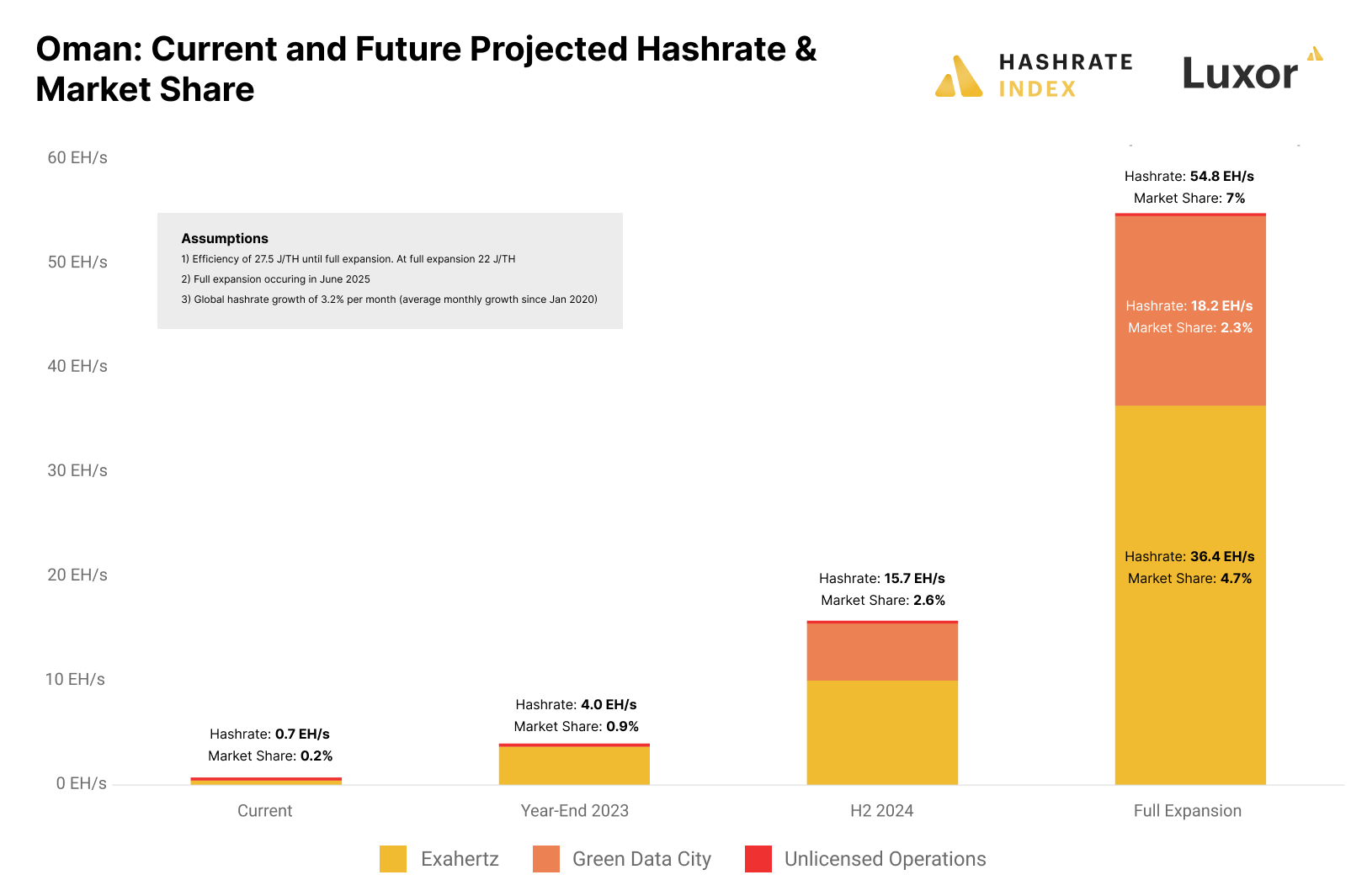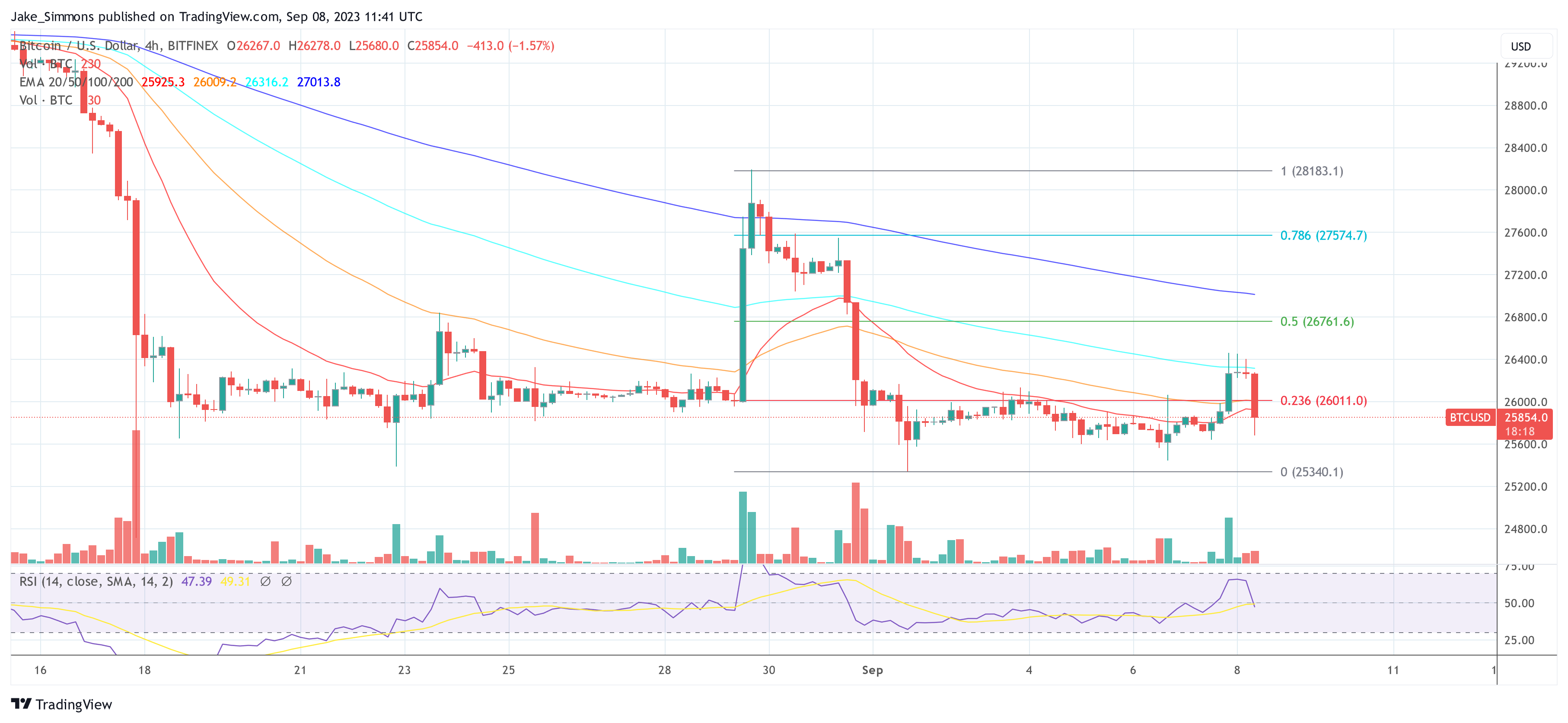In a rapidly evolving global landscape, where nations are vying for dominance in the Bitcoin mining sector, Oman has emerged as a dark horse with its ambitious plans. The nation aims to capture a staggering 7% of the global Bitcoin hash rate by June 2025. This is not just a lofty goal; it’s backed by data presented by Bitcoin mining expert Jaran Mellerud in his latest report.
Oman, traditionally an oil-centric economy, is located on the southeastern coast of the Arabian Peninsula. It shares borders with Saudi Arabia, the United Arab Emirates, and Yemen. Historically, Oman has been the 6th largest oil producer per capita globally. However, the winds of change are blowing, and Oman is shifting its focus to Bitcoin mining.
Oman Set To Become A Bitcoin Mining Heavyweight
As of September 2023, Oman has approximately 20 MW of mining capacity in operation. This includes Exahertz’s and Green Data City’s pilot projects of 11 MW and 1.2 MW, respectively. Additionally, there are a few MWs of unlicensed operations. At an efficiency rate of 27.5 J/TH, this 20 MW of power consumption translates to 0.7 EH/s, giving Oman a 0.2% share of the global hash rate at the moment.
By the end of 2023, the total hash rate originating from Oman could touch 4 EH/s, which would be 0.9% of the Bitcoin mining network, according to Mellerud. This growth is primarily attributed to Exahertz’s expansion to 100 MW.
However, the growth doesn’t stop there. By the second half of 2024, Mellerud’s projections indicate that Exahertz will have 275 MW running, generating 9.9 EH/s. Concurrently, Green Data City has plans to commission 150 MW, which would yield an estimated 5.5 EH/s. This combined effort could push Oman’s total hash rate in the second half of 2024 to 15.7 EH/s, or an estimated 2.6% of the network.
The long-term vision for Exahertz and Green Data City is to scale up to 800 MW and 400 MW, respectively. If we assume an average efficiency of 22 J/TH, these projects’ combined 1,200 MW could potentially generate a total of 54.8 EH/s. This would equate to an estimated 7% of the Bitcoin hash rate by June 2025, according to estimates by Mellerud who noted that both companies do not have a stated timeline for their full expansion.

Governmental Support
The Omani government’s role in this endeavor cannot be understated. They have provided a conducive environment for Bitcoin mining operations. Currently, only two companies, Exahertz and Green Data City, hold licenses for developing and operating Bitcoin mining operations in the country.
At the end of August, H.E Sheikh Mansour Bin Taleb Bin Ali Al Hinai, Chairman of Oman’s Authority for Public Services Regulations, publicly commented about his nation’s government support of privately-owned Bitcoin mining facilities, which are set to attract a total investment of over $1.1 billion. He said, “this initiative aligns with our goal to diversify our economy, integrating modern technologies while upholding our commitment to ethical and sustainable practices.”
Electricity rates are a crucial factor in the profitability of Bitcoin mining. In Oman, licensed miners can avail electricity tariffs below $0.04 per kWh, a rate that’s highly competitive on the global stage. This is in stark contrast to the rates for households ($0.026 per kWh) and businesses ($0.166 per kWh).
Oman’s climate, especially in areas like Salalah, offers a natural advantage for Bitcoin mining. Unlike the scorching heat experienced in many Middle Eastern countries, Salalah benefits from a microclimate that offers cooler temperatures, especially during the monsoon season. This climatic advantage reduces cooling costs and enhances the efficiency of mining operations.
Moreover, the Omani government has advanced a target of generating 30% of the electricity from renewable sources by 2030. The only way to achieve this goal is by initiating massive development of Oman’s excellent solar resources; a perfect fit for Bitcoin miners who can profit from the surplus when there are fluctuations in the network.
Oman’s strategic approach to Bitcoin mining is evident in its infrastructure development, governmental support, and utilization of natural advantages. The report by Mellerud suggests a promising future for the nation in the Bitcoin mining sector. If projections hold true, Oman, in collaboration with other Middle Eastern nations, could capture 15% of the global Bitcoin mining hash rate in the coming years.
At press time, BTC traded at $ 25,854.

Source: https://bitcoinist.com/bitcoin-oman-plans-capture-7-hashrate-june-2025/
